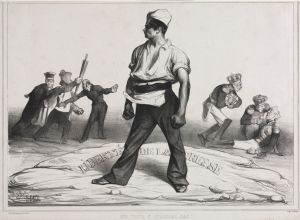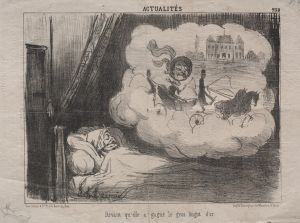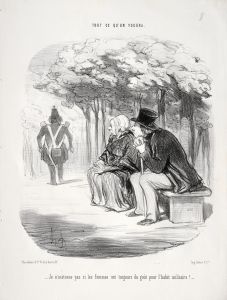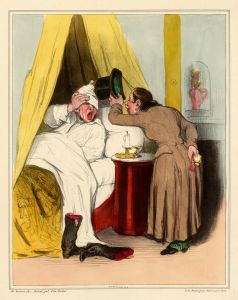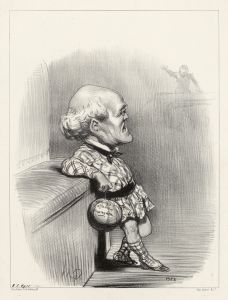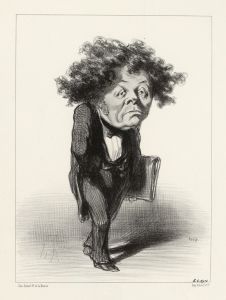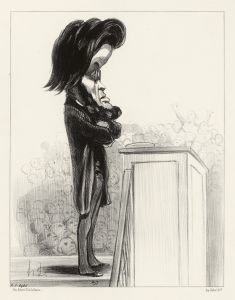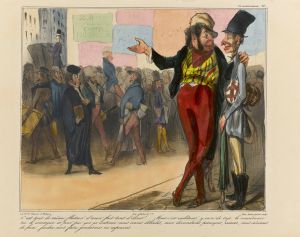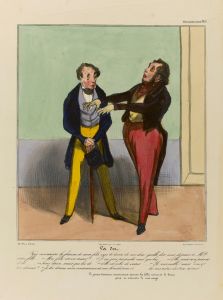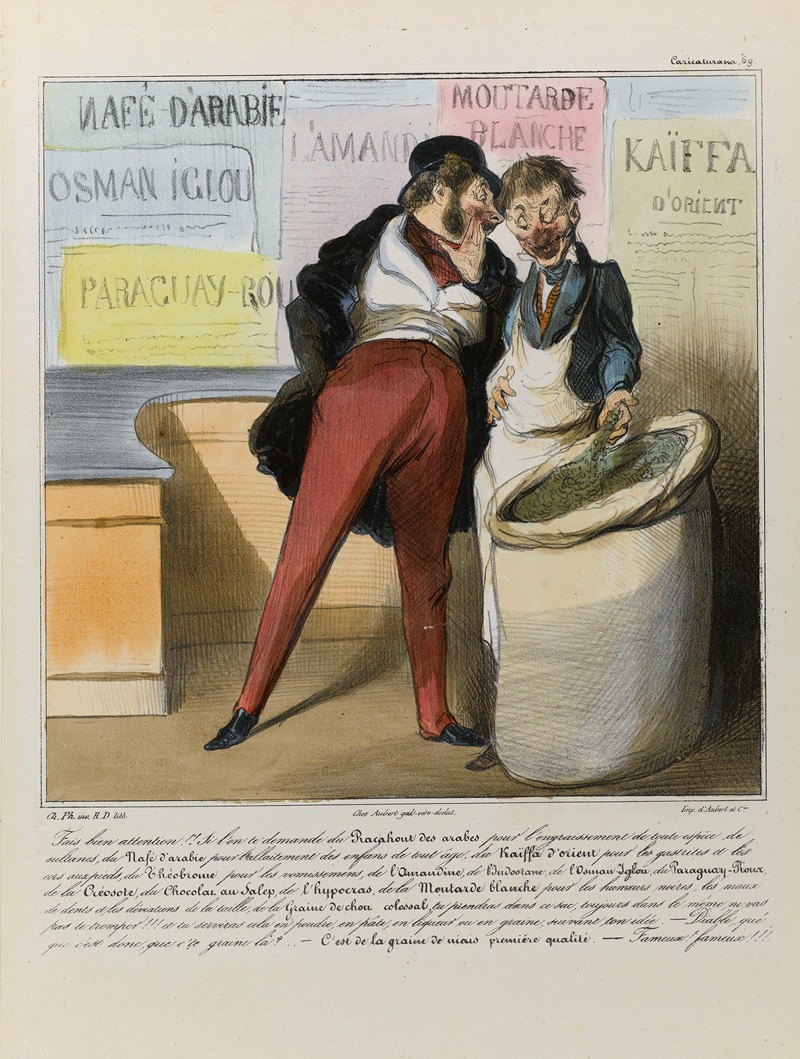
Fais bien attention Si l’on te demande du Racahout des Arabes pour l’engraissement de toute espèce de sultanes
A hand-painted replica of Honoré Daumier’s masterpiece Fais bien attention Si l’on te demande du Racahout des Arabes pour l’engraissement de toute espèce de sultanes, meticulously crafted by professional artists to capture the true essence of the original. Each piece is created with museum-quality canvas and rare mineral pigments, carefully painted by experienced artists with delicate brushstrokes and rich, layered colors to perfectly recreate the texture of the original artwork. Unlike machine-printed reproductions, this hand-painted version brings the painting to life, infused with the artist’s emotions and skill in every stroke. Whether for personal collection or home decoration, it instantly elevates the artistic atmosphere of any space.
Honoré Daumier, a prominent French printmaker, caricaturist, painter, and sculptor, is renowned for his insightful and often satirical depictions of 19th-century French society. One of his works, "Fais bien attention Si l’on te demande du Racahout des Arabes pour l’engraissement de toute espèce de sultanes," reflects his characteristic style of combining humor with social commentary. However, specific details about this particular piece are scarce, and it is not one of Daumier's most widely recognized works.
Daumier was born in 1808 in Marseille, France, and moved to Paris with his family in 1816. He began his career as a lithographer and gained fame for his caricatures published in the satirical newspaper "La Caricature" and later in "Le Charivari." His work often critiqued the political and social issues of his time, targeting figures of authority and the bourgeoisie. Daumier's art is characterized by its expressive line work, keen observation, and ability to convey complex social messages through humor and irony.
The title of the work, "Fais bien attention Si l’on te demande du Racahout des Arabes pour l’engraissement de toute espèce de sultanes," suggests a satirical take on cultural and possibly colonial themes. "Racahout des Arabes" refers to a type of health food or drink that was popular in 19th-century France, often marketed with exotic and orientalist imagery. The mention of "sultanes" could imply a commentary on the Western fascination with the Orient and the stereotypes associated with it.
Daumier's work often explored themes of power, justice, and the human condition, and he was known for his ability to capture the essence of his subjects with minimal detail. His caricatures of King Louis-Philippe, depicted as a pear, are among his most famous works, highlighting his skill in using visual metaphor to critique authority.
Despite the lack of detailed information about this specific piece, it is likely that it fits within Daumier's broader oeuvre, which frequently addressed the absurdities and injustices of contemporary society. His work remains influential for its innovative use of lithography and its enduring relevance in discussions of political and social critique.
Daumier's legacy is significant, as he is considered a precursor to modern caricature and a master of capturing the spirit of his age. His works are housed in major collections worldwide, including the Louvre in Paris and the Metropolitan Museum of Art in New York. While "Fais bien attention Si l’on te demande du Racahout des Arabes pour l’engraissement de toute espèce de sultanes" may not be as well-documented as some of his other pieces, it nonetheless contributes to the rich tapestry of his artistic output, reflecting his unique perspective on the world around him.





